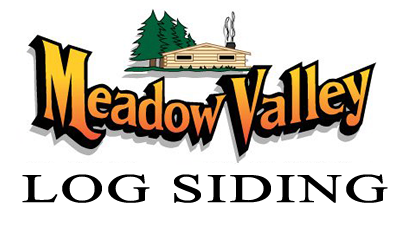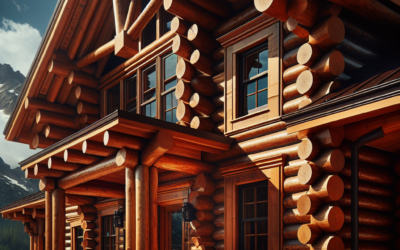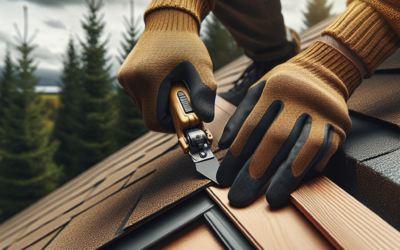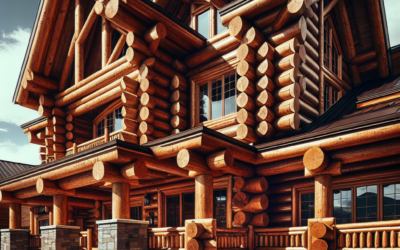Log Home Materials: The Ultimate Guide to Sustainable Building
1. Introduction
Did you know that the demand for log home materials has surged in recent years, placing them at the forefront of eco-friendly construction trends? As homeowners and builders increasingly prioritize sustainability, log homes are becoming a popular choice. These structures not only offer a rustic aesthetic but also provide significant environmental benefits, making them an appealing option for modern living. In this comprehensive guide, we will explore the various types of log home materials, their benefits, and practical applications for construction and renovation. Whether you are a homeowner dreaming of a rustic retreat or a contractor looking to expand your material offerings, understanding log home materials is essential for making informed decisions that align with your design goals and environmental values.
2. What are Log Home Materials?
Log home materials refer to the various types of logs used in the construction of log homes. These materials can range from traditional round logs to modern, milled options that provide a more uniform appearance. The choice of log type can significantly affect the look, feel, and performance of a log home.
Historical Context
Log homes have a rich history, dating back to ancient times when they were built by early settlers seeking shelter. The simplicity and availability of logs made them a practical choice, especially in forested areas. Over the years, log homes have evolved, transitioning from simple structures to sophisticated designs that incorporate modern amenities while maintaining their rustic charm.
Importance of Log Home Materials
The growing interest in log home materials can be attributed to several factors. Firstly, they are considered eco-friendly due to their natural insulation properties, which can reduce energy consumption. Secondly, log homes offer unique aesthetic appeal, blending seamlessly into their natural surroundings.
Log Home Materials in the Context of the Construction Industry
The construction industry has seen a shift towards sustainable building practices, and log home materials are an integral part of this trend. As builders and homeowners seek to reduce their carbon footprint, log homes provide a viable solution that combines beauty and functionality.
Key Players or Contributors
Several influential architects and builders have championed the use of log materials in home construction. Companies specializing in log home manufacturing have also played a crucial role in promoting these materials, ensuring that they meet modern building standards while preserving their traditional appeal.

3. How Do Log Home Materials Work?
The Mechanics of Log Home Materials
The construction of log homes involves stacking and fitting logs in a way that creates a sturdy and durable structure. This method not only provides a unique aesthetic but also offers excellent insulation properties, keeping homes warm in winter and cool in summer.
Technological Foundations of Log Home Materials
Advancements in technology have revolutionized the way log homes are constructed. Modern milling techniques allow for precision-cut logs that fit together seamlessly, enhancing the structural integrity of the home. Tools such as drawknives and chisels are employed for crafting and shaping logs, ensuring that each piece is tailored to fit perfectly.
Real-World Applications of Log Home Materials
Log homes are not just for rustic cabins anymore; they have gained popularity in various residential settings. From vacation retreats nestled in the woods to permanent residences in suburban areas, log home materials are versatile and can be adapted to suit different styles and preferences.
Case Studies/Examples of Log Home Materials in Action
One notable example of log home construction is the use of white pine log siding, which combines lightweight properties with durability, making it an excellent choice for both interior and exterior applications. Homeowners have successfully created stunning log homes that reflect their personal style while benefiting from the natural insulation properties of the wood.
Benefits and Drawbacks of Log Home Materials
Like any building material, log home materials come with their own set of advantages and limitations.
Benefits:
- Insulation: Log homes provide excellent thermal insulation, reducing heating and cooling costs.
- Aesthetic Appeal: The natural beauty of wood adds a warm and inviting atmosphere to any home.
- Sustainability: Logs are a renewable resource, making them an eco-friendly choice.
Drawbacks:
- Maintenance: Log homes require regular maintenance to prevent issues such as rot and insect damage.
- Cost: Depending on the type of logs and construction methods used, log homes can be more expensive than traditional stick-built homes.
4. The Benefits of Log Home Materials
Why Use Log Home Materials?
Choosing log home materials offers numerous practical benefits compared to traditional building materials. Understanding these advantages can help homeowners and builders make informed decisions.
Improved Efficiency and Productivity
Log homes can often be quicker to build than traditional homes, as the logs are pre-cut and assembled on-site. This efficiency can lead to reduced labor costs and faster project completion times.
Cost-Effectiveness
While the upfront cost of log home materials may be higher than conventional materials, the long-term savings can be significant. The natural insulation properties of logs contribute to lower energy bills over time, making log homes a cost-effective choice in the long run.
Energy Efficiency
Log homes promote energy efficiency, helping homeowners save on utility bills. The thick logs provide excellent thermal mass, absorbing heat during the day and releasing it at night, which can help regulate indoor temperatures.
Aesthetic Appeal
One of the most compelling reasons to choose log home materials is their unique aesthetic. Log homes offer a timeless beauty, blending seamlessly with nature and providing a warm, inviting atmosphere. The natural variations in wood grain and color add character and charm to each home.
Durability and Strength
Log homes are known for their durability and strength. When properly maintained, log homes can last for generations, standing up to harsh weather conditions and natural wear and tear.
Versatility in Design
Log home materials are available in various styles and finishes, allowing homeowners to customize their space according to their preferences. From traditional round logs to modern milled options, the design possibilities are endless.
Health Benefits
Living in a log home can provide health benefits due to the natural materials used in construction. Wood is a natural air purifier, and the humidity levels in log homes can be more stable, creating a comfortable living environment.
5. Practical Applications of Log Home Materials
Designing Your Dream Log Home
When it comes to designing a log home, the possibilities are virtually limitless. Homeowners can choose from various layouts, styles, and finishes to create a space that reflects their unique taste and lifestyle.
Choosing the Right Logs
Selecting the right type of logs is crucial in the construction of a log home. Options such as cedar log siding and spruce log siding offer different aesthetics and performance features. Researching the properties of each type of log can help homeowners make the best choice for their project.
Log Home Kits
For those looking for a more straightforward approach, log home kits are available that come with pre-cut logs and detailed assembly instructions. These kits can simplify the building process and are an excellent option for DIY enthusiasts.
Interior Design with Log Home Materials
Log home materials can also be used creatively in interior design. For example, log siding for interior walls can add rustic charm to any space, creating a cozy and inviting atmosphere. Homeowners can also incorporate log elements into furniture and decor to enhance the overall aesthetic.
Maintenance Considerations
Maintaining a log home is essential for preserving its beauty and durability. Regular inspections, cleaning, and the application of protective treatments can help prevent issues such as moisture damage and pest infestations. For more detailed tips, refer to our comprehensive guide on log siding maintenance tips.
Energy Efficiency Upgrades
Many homeowners are now looking for ways to enhance the energy efficiency of their log homes. Upgrades such as improved insulation, energy-efficient windows, and solar panels can contribute to a more sustainable living environment.
6. Future Trends in Log Home Materials
Sustainable Building Practices
The future of log home materials is closely tied to the increasing demand for sustainable building practices. As more homeowners prioritize eco-friendly options, log homes are likely to gain further popularity due to their renewable nature and low environmental impact.
Innovations in Log Home Construction
Advancements in construction technology are paving the way for more efficient log home building processes. Innovations such as advanced milling techniques and precision tools are enhancing the quality and speed of log home construction.
Customization and Personalization
As the demand for unique and personalized homes grows, log home materials will likely adapt to meet these needs. Homeowners will have more opportunities to customize their homes, from choosing specific log types to incorporating modern design elements.
Integration of Smart Home Technology
The incorporation of smart home technology into log homes is a trend that is expected to continue. Homeowners can enhance their living experience by integrating smart systems for energy management, security, and automation.
7. Conclusion
Log home materials offer a unique blend of beauty, sustainability, and practicality. As the construction industry moves towards eco-friendly solutions, log homes stand out as a compelling option for homeowners looking to create a warm and inviting space. From their historical roots to modern innovations, log homes continue to evolve, providing endless possibilities for design and construction.
If you’re considering building a log home, take the time to explore the various types of log materials available and the benefits they offer. Whether you’re looking for energy efficiency, aesthetic appeal, or durability, log home materials can meet your needs and exceed your expectations. For more insights and resources on log home construction, be sure to check out our log home resources expert guides and tools.
This comprehensive guide has covered the essential aspects of log home materials, their benefits, and practical applications. If you have any questions or
Resource Links:
1. Log Home Living – A comprehensive resource for log home enthusiasts featuring materials, construction tips, and design ideas.
2. Log Homes Council – An organization providing information on log home construction standards, materials, and sustainability.
3. Timber Home Living – A magazine focused on timber and log homes, offering insights on materials, building techniques, and design trends.




0 Comments